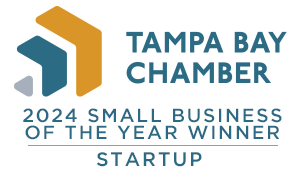Who doesn’t want to strike gold, like Mark Zuckerberg or Steve Jobs? Those visionaries conceptualized a seemingly “scrappy” business idea. They successfully built their startups. And then, they watched as the growth skyrocketed. But, was it really that straightforward?
With the right business model. The right team. And the proper scaling strategy, could you do the same?
We already know that you have incredible instincts. And phenomenal leadership skills. But, you need to know where to start. And, you need a clear path to follow.
Read our insider tips for scaling a startup using financial expertise to actualize your growth vision!
What Is Scaling?
Scaling is when you rapidly grow and expand your business as it relates to the following:
- Customer Base
- Revenue
- Employee Headcount
Usually, you want to scale up your company to achieve these goals:
- Expand Market Share
- Become a Market Leader
- Increase Profitability
Types of Scaling
Not all businesses scale the same, as there are several different types of scaling.
They are:
- Customer: Target new customers or markets to grow your customer base, improve marketing strategies and sales efforts, or develop new partnerships
- Headcount: Hire people, adding team members to support expansion
- Infrastructure: Upgrade technology, improving inventory management, logistics, and supply chain
- Operational: Improve business operations as it relates to bandwidth, server capacity, and storage
- Revenue: Increase revenue by expanding into new markets, diversifying products or services, altering pricing, or increasing sales to existing customers
Stages of a Startup
Going from startup to scale-up is rarely linear and will be full of challenges. Premature scaling can cause a business to quit the process or pivot after failing to meet targets.
However, the startup stages below are fundamental for any startup growth strategy:
- Ideation: Develop an idea for a product or service. Conduct market research and get customer feedback. Focus on creating a minimum viable product (MVP), then test.
- Pre-seed: Secure funding to create a prototype. Focus on finding early adopters.
- Seed Stage: Secure more funding for product development. Also, focus on building a team. Obtain initial customers and prove company efficacy.
- Early Stage: Procure additional funding to continue to expand operations. Aim to find product-market fit and traction.
- Growth Stage: Attract more investment to increase market share, profitability, and revenue by expanding the product line, entering new markets, and gaining new customers.
- Expansion Stage: Enter new markets, launch new products, and acquire smaller companies to continue growth. Increase competitiveness, efficiency, and scale.
- Maturity Stage: Optimize operations, improve profitability, and secure market position to maintain long-term growth and stability.
As you can see, securing business financing is critical for scaling up in most stages. Partnering with an experienced CFO is often vital to obtaining the funds needed during the scale-up process.
When Are You Ready to Start Scaling a Startup?
Knowing when to start scaling is paramount to the success of your growth. Unfortunately, we can’t say precisely when this is for your business as timing varies across industries, products, target audiences, and more.
However, these tips will help you gauge when your business is ready.
Business Areas to Watch
By tracking the following business metrics, you can get an idea of the best time to begin scaling:
- Revenue Growth
- Cash Velocity
- Customer Acquisition
- Customer Retention
- Market Penetration
External Factors
It’s essential not to exclude external factors when discussing scalability. The most critical factors are:
- Economic Conditions
- Regulatory Environment
- Industry Dynamics
- Geography
- Competition
- Access to Funding and Talent
- Technology Trends
Key to a Successful Scale-Up
Not every scalable startup business will be successful. WeWork is a great case study to review.
In 2019, it was valued at $47B – the highest valued private company in the US. But, due to an unexpected real estate slump, the pandemic, and other internal mitigating factors, the company is now valued at less than $100M and recently filed for bankruptcy protection.
Thus, according to the Harvard Business Review, the key to success is extrapolation. A company must explore profitable growth options while exploiting economies of scope and scale.
This is where financial expertise can make or break your company’s scalability. To further learn how financial planning helps with startup scaling, check out our tips for financial planning analysis for business growth.
Strategies and Tips for Scaling
As a well-informed CEO, you’ve been championing company culture, ensuring everyone on the team, from Co-Founder to Entry Level Associates, are on board with your Mission, Vision, and Values. And, your decision to scale. You understand that alignment is key to your success.
Ready to transition from a start up to a scale-up? Let’s go!!
First, let’s make sure to streamline operations. Now is not the time to be sloppy or wasteful. Some ways to do this include:
- Automation
- Standardization
- Process Optimization
- Investing in Scalable Infrastructure, like SaaS tools
- Engaging in Data-Driven Decision-Making
- Diversified Expertise via Outsourcing
If you’re considering outsourced services, there are many options. From Fractional CMOs to Fractional CIOs, you can procure expertise from a variety of different disciplines. We do, however, recommend that you leverage an outsourced CFO as your top choice. Read about how an outsourced CFO can optimize your business to see why.
Additionally, as you scale, do not forget about the customer experience. Customer retention is key. You worked so hard to earn these customers, let’s make sure we take the appropriate measures to ensure their satisfaction and loyalty. You may need to implement additional measures, including customer satisfaction surveys, while refining marketing tactics – investing in social media, direct marketing, and SEO - to solidify your customer base.
Do your research to best determine how to connect with your customers, so your business remains at the top of their mind.
And, finally, it’s important to have a business model with a five-to-seven-year exit plan. Because, after all, scaling is a marathon, not a sprint.
Let Us Help You Scale Your Startup
Scaling a startup is not for the faint of heart. But you know better than anyone that excellence doesn’t happen by accident. And, that you’re more likely to succeed with a well thought out plan.
Excited to scale your startup, but need additional support and expertise?
The William Stanley Group can help. Contact us today to learn more.




